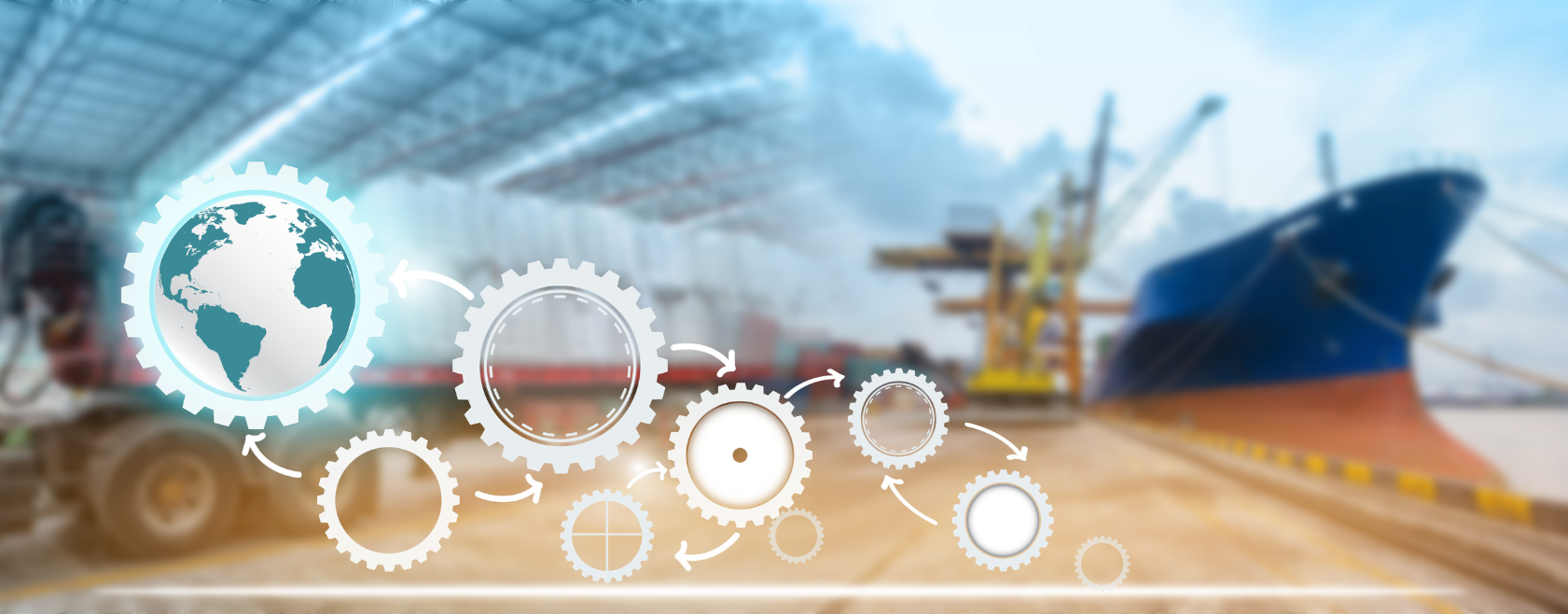How Transportation Spend Management (TSM) and TMS Complement Each Other
In supply chain, “Transportation Spend Management” (TSM) and “Transportation Management Systems” (TMS) are often confused with each other, due to their similar acronyms and the fact that they both help enhance logistics performance, save costs, and grow your market share. However, it’s important to understand the differences between the two and how they pair together.
We’ll take you through what Transportation Spend Management and transportation management systems are and highlight their benefits and differences along the way.
- What is Transportation Spend Management (TSM)?
- What is a Transportation Management System (TMS)?
- Transportation Spend Management and Transportation Management Systems: Similarities
- Capabilities Unique to Transportation Spend Management
- Maturing Your Transportation Management
What is Transportation Spend Management (TSM)?
Transportation Spend Management (TSM) is a data-driven approach to analyzing, optimizing, and leading the financial and operational performance of your logistics, as well as factors that impact transportation spend and the delivery of value to customers.
While Transportation Spend Management is considered a complex element of supply chain management, the rewards accompanying the mastery of Transportation Spend Management are colossal. Nearly 25% of supply chain professionals state delivery costs as their biggest challenge and as many as 21% of supply chain professionals say data visibility is their biggest challenge. Optimizing your Transportation Spend Management can help remedy both matters.
Implementing a spend management strategy affects all layers of a supply chain. For example, simply outsourcing freight audit and payment saves companies 3% to 5% annually. Transportation Spend Management offers additional savings through greater carrier performance, invoice matching, and rate management, which compounds annually. In a short time, that adds up to a substantial ROI and increase in your bottom line.
As part of its innovative approach to matters, Trax has reimagined freight audit to be much more and is bringing Transportation Spend Management mainstream. The Trax Transportation Spend Management Maturity Model is a framework that provides a roadmap for large, global enterprises to shift from a lack of visibility and control to a fully optimized and accurate data-based transportation supply chain—for all modes and geographies.
There are several stages of the Trax Transportation Spend Management Maturity Model:
- Proactive—Companies respond to issues as they arrive, and eventually begin to plan and anticipate matters that lay ahead.
- Optimizing—Accurate and high-quality data is obtained and assiduously analyzed. This offers companies better visibility and the ability to make informed decisions based on data rather than assumptions.
- Leading—A company at this stage is fully capable of not just weathering challenges, but using them to their advantage. These companies have aptitude, capabilities, visibility, control, and optimized operations. They become pioneers of the market, leading change and innovation while extensively growing their market share and simultaneously cutting costs.
Now that we’ve discussed the definition of Transportation Spend Management, we’ll dive into transportation management systems.
What is a Transportation Management System (TMS)?
A transportation management system is the logistics platform you need to plan and initiate your transportation. It helps you to better map out and execute various modes of transportation, as well as streamlines your logistical processes, aiding in optimizing routing guidelines, shipment execution, load configuration, fleet management, and more. This enables companies to plan, execute, and ultimately optimize shipments.
Companies that invest in a transportation management system see freight cost reductions (but savings are even greater when you add in Transportation Spend Management). More companies are investing in transportation management systems to help them stand out from the ever-growing competition in the market. There has been more than 15% growth in the use of transportation management systems in the last few years.
At Trax, we believe that fully optimizing your supply chain management means leveraging both Transportation Spend Management and transportation management systems. Using them together is like one plus one equals four—together, they provide unequivocal power. Let’s look at how they complement each other.
Transportation Spend Management and Transportation Management Systems: Similarities
Both Transportation Spend Management and transportation management systems on their own offer value. But together, their unique capabilities play off of each other to be powerful tools that help optimize your company’s performance and growth.
Here are the areas in which Transportation Spend Management and transportation management systems intertwine to help you optimize your supply chain.
Multi-modal services (FTL, LTL, ocean, air freight, intermodal, and parcel)
Most companies operating on a global, multi-modal stage have both platforms. Transportation management systems make sense of the cobweb of information and operations. Transportation Spend Management builds upon that with collecting, normalizing, and managing all of that data from all systems and carriers so it can be fed into transportation management systems, thereby providing higher visibility and allowing for future transportation planning and execution. All of this helps you make data-informed decisions that can cut costs and deliver high quality to customers.
Transportation analytics
Transportation management systems have limited analytics capabilities, and for a global transportation program, the variety of modes and carriers and the volume are a challenge. Transportation Spend Management is data source agnostic and combines data from both platforms to provide more actionable insights.
Rate management
Accessing modes and carriers are limited to one at a time with transportation management systems, which leaves you with a cumbersome micro view. Transportation Spend Management gives the big picture—you can manage rates across all modes and carriers in a centralized manner. This makes it possible to collect and access data so you can optimize and make decisions in real time. In other words, you’re armed with the visibility and flexibility to compete on the global stage.
Routing optimization (cost/time in transit)
While transportation management systems allow routing guides for timely and accurate shipments, Transportation Spend Management lets you optimize associated costs. Combining both platforms delivers insight into the entire process, and you can set resilient guidelines. Transportation Spend Management offers the ability to create a robust process for constant monitoring and evaluation of your routing guidelines to check if they achieve your set goals. The platform provides easy guidelines review and maintenance, so you have more control and accuracy.
Trade compliance/customs brokerage
Demurrage charges, lost sales, and dissatisfied customers are a result of poor trade and custom compliance. Companies can increase visibility and standardization of processes through both Transportation Spend Management and transportation management systems. Transportation Spend Management collects data and uses it to monitor and evaluate these factors, with an eye for optimizing the processes.
Freight payment, billing, and loss/damage claims
Up to 25% of all freight invoices have errors, triggering audits and payment exceptions. Transportation management systems allow for limited freight audit and payment (FAP) with rigid data requirements and/or only for a specific mode. Transportation Spend Management takes FAP to the next level with optimizing the process and reducing—or even eliminating—loss and damage claims. Focusing on analyzing high-quality data and getting to the root of the issue to mitigate errors and claims, it takes FAP and molds it into a strength of your operations that reduces costs, lowers resources required, and more to elevate your bottom line.
Forwarding/brokerage operations
Companies are paying more attention to forwarding and brokerage operations to ensure they meet business ideals, spend money wisely, and have satisfied customers. Forwarding and brokerage operations can be costly to your brand if not managed correctly, which transportation management systems help you do efficiently. Gaining more visibility and control over the costs is an imperative factor when considering your platform.
Fleet management
Fleet management can have a plethora of surcharges that affect your profit margin. Transportation management systems help make sense of convoluted processes, fleet whereabouts, and delivery times. Transportation Spend Management complements the operation part of the process. It aims to optimize the process, lower costs, and elevate performance through high-quality data collection and exhaustive analytics. You’ll know the what, where, and why of your spend so you can cut costs in one of supply chain’s most hectic sectors.
Load configuration/optimization/consolidation
As a growing number of carriers are defining themselves as generalists, specialists, or a hybrid of both when it comes to load configuration, it’s increasingly important to know which carriers meet your needs and budget. Investing in transportation management systems and Transportation Spend Management is imperative. In tandem, both deliver historical and real-time information to create a robust strategy concerning load configuration and optimization.
Transportation sourcing
Transportation management systems can make it simple to organize delivery time accuracy, availability, quality, compliance, and costs, which come into play when considering your transportation sourcing. However, for multi-national, modal complex, or varied carriers, Transportation Spend Management is particularly necessary to build upon transportation management systems’ offerings and take your transportation sourcing operations to the next level. Transportation Spend Management platforms, such as Trax Rate Manager, centralize everything to make it even easier. Insights gleaned via optimization of data management, carrier management, FAP, and so on in Transportation Spend Management means more profit and less risk.
Now, we’ll cover some additional offerings of Transportation Spend Management that go beyond transportation management systems.
Capabilities Unique to Transportation Spend Management
Distinctions exist between Transportation Spend Management and transportation management systems, but what is one’s weakness is the other’s strength. Hence, they complement each other beautifully. Transportation Spend Management has several unique capabilities that help you mature and optimize processes so you can shift from tackling issues as they arise to being an industry leader.
All freight and transportation data capture, management, and enrichment
Transportation Spend Management is deeply concerned with capturing high-quality data in your logistics network. You can identify data errors and gaps that would otherwise hurt your data quality. Yet, it doesn’t stop there. It enriches and manages the data to increase visibility so your supply chain can make data-based decisions. At Trax, we can advise on and help you to establish data management best practices to create a continuous improvement cycle where data drives decisions in a shorter, regular cadence cycle time, so you can adjust to market conditions.
Invoice audit and carrier exception resolution
You can manage accurate and timely invoices, conduct audits, and resolve exceptions and drive for root-cause corrective action. This prevents wasting the time, resources, and funds associated with managing that exception over and over again. As you optimize and climb higher in the Trax Transportation Spend Management Maturity Model, you gain complete control and, in turn, can mitigate risk or exposure.
Contract management
By having the data and visibility in hand from Transportation Spend Management, you can develop a contract management strategy that aligns with your supply chain objectives. This helps companies weather the most difficult storms and standardize operations. Invoice fees and other charges that don’t align with your contract terms are wasted money. Trax helps you optimize processes and ensure contract compliance for better control of your transportation costs.
Payment management
Transportation Spend Management is all about ensuring that you pay the right amount to the right place, on time. Incorrect charges and late fees are avoidable profit losses. Transportation Spend Management allows for electronic billing, such as EDI and API, a process that can make invoice processing 77% faster and 81% cheaper, reduce mistakes, and free up resources. Managing payments means you know where you’re losing money (and prevent it in the future), as well as where to save money so your business can grow.
Accrual management
Accruals can have gargantuan effects on your profits. Overbudgeting means locking up funds that could be used elsewhere for company growth, while underbudgeting leads to a slew of financial and other problems. Transportation Spend Management helps optimize accrual management, bringing all carrier data into a centralized location. Not only does this offer easier, more accurate invoice and shipment record matching, but also a combination of shipment-specific accrual estimates and rate/historical accrual (including accessorials). Transportation Spend Management makes the accrual and the accrual processes stronger, giving you the power to make informed decisions to boost your ROI and bottom line.
Claims management
Managing claims is an intricate and often costly task—finding the bill, shipping notification, or other documents to prove the cause of error, submitting it for review, and so on. In many cases, claims are written off as a loss, adding up to significant financial losses over time. Transportation Spend Management reduces your claims, and sets a pathway to ideal claim management that increases efficiencies and decreases costs.
Transportation spend allocation
At the core of Transportation Spend Management is transportation spend allocation, which centers around understanding where your money is spent and what you get in return. Optimizing this process translates into allocating funds wisely, not unnecessarily wasting them on costs when the funds could be spent elsewhere on growing your business.
Transportation spend intelligence: business intelligence and reporting (all spend regardless of source)
Business intelligence is a foundation for any company that wants to survive and grow in today’s economy. It’s critical to understand each aspect of your spend in order to make decisions on where and how to expand. Transportation Spend Management has the flexibility and robust capability of putting you in the know for all spend, regardless of the source. Transportation Spend Management gives the data, details, history, and reports to make business-savvy decisions to grow your company and remain competitive.
Program management and advisory
With the robust, normalized, and quality data gleaned from Transportation Spend Management, you can leverage your transportation program to provide real customer value with on-time, damage-free deliveries and high-quality customer service. Transportation Spend Management provides a framework for continuous process improvement, and Trax has a team of advisors who can help navigate you through it.
Those are the similarities and differences between Transportation Spend Management and transportation management systems. At Trax, we’ve seen firsthand how having these powerful tools in your pocket can lift a company’s supply chain management to the next level.

Trax Technologies
Trax is the global leader in Transportation Spend Management solutions. We partner with the most global and complex brands to drive meaningful optimizations and savings through industry-leading technology solutions and world-class advisory services. With the largest global footprint spanning North America, Latin America, Asia, and Europe, we enable our clients to have greater control over their transportation performance and spend. Our focus is on your success.





